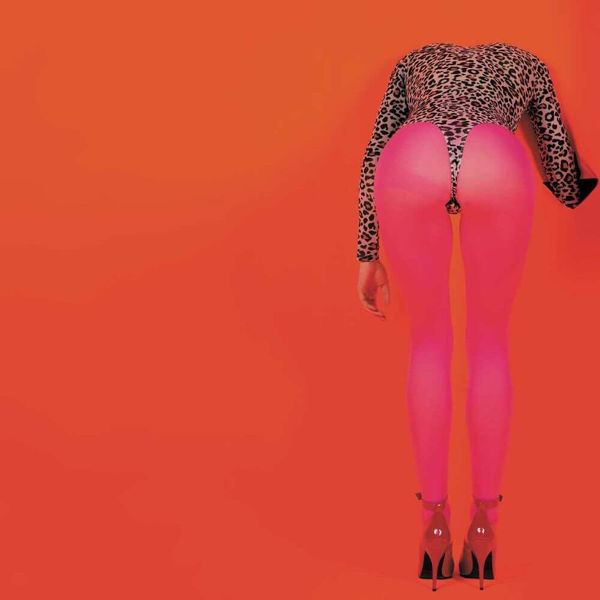André
Avoiding the pitfalls that can often appear on art-rock records, St. Vincent’s self-titled album is a confident release that sparkles with peculiarity but steers away from pretension.
In capturing the middle ground between passion and precision, Annie Clark achieves a distinct sound that can only be described as some sort of melodic computer malfunction, her sweet voice combining effortlessly with jittery guitars, shifty synthesisers, and noise-influenced textures that are welcoming rather than challenging. Clark retains her status as being one of the most distinctive guitarists in modern music, and it's no surprise that most of the hits on St. Vincent contain those wonderfully condensed guitar fragments that make her such a unique performer.
However, whilst there is a lot to admire about the album, proceedings do unfortunately get a little wobbly towards the end. It’s undoubtedly a tight record, flowing effortlessly from track to track, but when the first half is crammed with so many good ideas, the following portion ends up feeling rather uninspired in comparison. Aside from the poignant closer, there isn’t a single moment that gets close to being as captivating as the vocal hooks on “Digital Witness” and “Birth in Reverse”, with “Every Tear Disappears” being a particularly notable dud.
That being said, there are enough positives running through the album to warrant the universal praise that was rewarded upon release in 2014, and the high points do certainly soar to tremendous heights. Overall, St. Vincent is an infectious work by an artist that we should absolutely be cherishing, but it’s the opening 23 minutes that really shine.
7 out of 10
Fred
Having been a casual follower of St. Vincent’s music for years prior to this release, it was a real treat to hear the various pieces of Annie Clark’s talent fall together with such aplomb. Channelling a vibrant mixture of art rock convention and lively initiative, St. Vincent is a crackling treat for the senses and the sensibilities.
Its surprisingly grounded underlying structure allows for all manner of fuzzy, distorted hell to break loose in ways that never feel gratuitous or abrasive. The enigmatic gorgeousness of Clark’s voice — a quality shared with her guitar work — is enticing, breathing soul into the distinctly modern machinery of which much of the album is comprised. It’s a lovely juxtaposition. For every audacious call in the vein of “Birth in Reverse” or “Rattlesnake” there is a gentle response of a “Prince Johnny” or “Severed Crossed Fingers”; and each track manages a unique inflection.
The effects of Clark’s recent collaboration with David Byrne on Love This Giant are evident, but they are but one of a series of influences that rarely outstay their welcome. There are a couple of bum notes in the final third of St. Vincent that I think hold the album back from the highest drawer, but they are minor blemishes on a work that will likely be held in the highest esteem when people reflect on notable cultural products of the 2010s.
8 out of 10
Andrew
To my surprise, as a new comer to St. Vincent, this eponymous album is filled with interesting, suitably distorted electronic timbres. Buzzes, whirs, and beeps cover the album, accompanying simple but satisfying beats and catchy guitar riffs. Over all this, Anne Clark’s distinctive vocal melodies pull the whole album together.
There are clear throwbacks throughout to the '80s, with Clark citing many artists of the period as her own influences, making for memorable, exciting tracks. The singles taken from the album demonstrate that there was a clear bias of upbeat tracks towards the former half of the album, the latter half settling down into a mix of experimentation and downtempo electronica.
While this is by no means a deal breaker for the album, it can make the tracklist feel a little lopsided. With that said, the closer, “Severed Crossed Fingers”, is one of the finer examples of this downtempo electronica (with twinges of country!) and allows Clark’s vocals and guitar to shine through. Certainly an album I shall return to fully in the future.
7 out of 10



